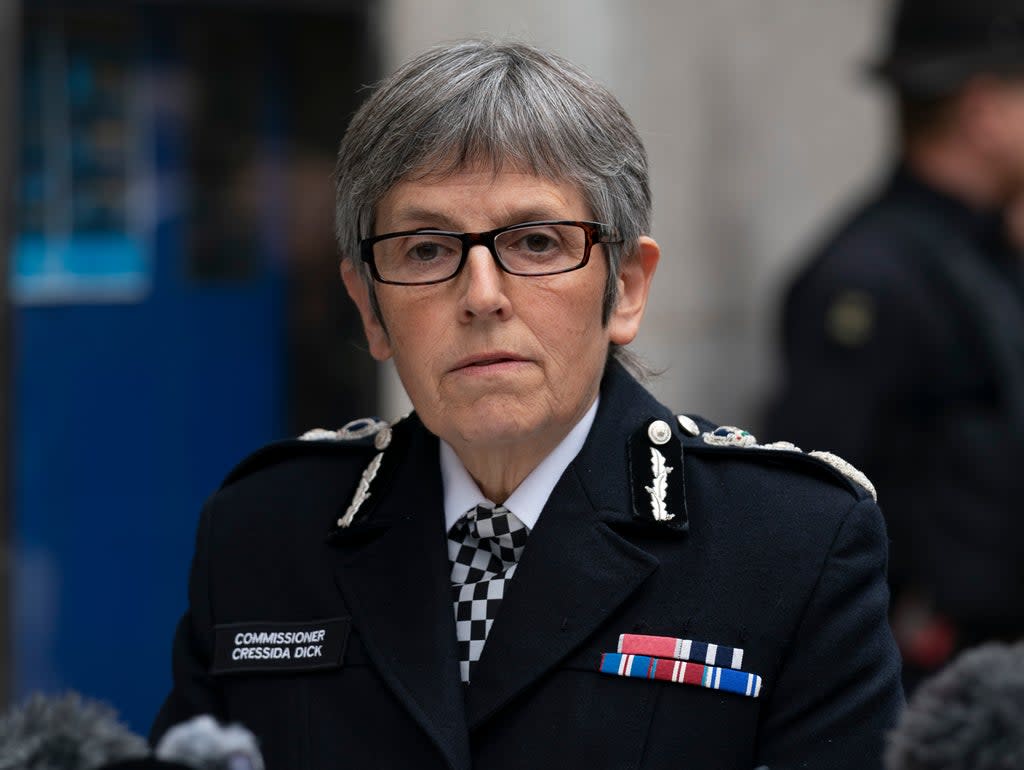We need nothing less than a national review into the culture of policing

The two British police officers who captured images of the dead bodies of murdered sisters Bibaa Henry and Nicole Smallman, and distributed them without warning to unsuspecting colleagues, have admitted their guilt at the Old Bailey. The pair had already been suspended from duty and will now be prosecuted for misconduct in public office. Two bad apples in the Metropolitan Police.
Just two? Another raft of allegations against officers came to light in the wake of the case, with more policemen (it is policemen, it’s worth pointing out) accused of taking and sharing, or of viewing, unauthorised images taken at the scene of a sudden death.
And even these individuals seem to have fallen from the same tree as one of the officers asked to protect and secure the site where the remains of the body of Sarah Everard lay, after she was herself kidnapped, raped and murdered by a serving Met Police officer.
A policeman guarding the site shared a graphic and “inappropriate” WhatsApp message about her death with colleagues. The man in question was “removed from public-facing duties”, and it was later revealed that the message was a “murder meme”. That’s all right then. He kept his job.
The more the skin of our policing is peeled away, the more is revealed of the rotten core hidden beneath. In just the last three weeks, I have worked on two stories that have exposed incompetence within police ranks. I exposed how data-sharing screw-ups in London put the safety of one woman seeking to protect the vulnerable from police brutality at risk, when her personal information, including her home address, was shared with the police officer she had launched a complaint about. And I spoke to a woman, herself a victim of years of abuse at the hands of a police officer, who is bringing together the women who have seen the moral underbelly of the British police force, in order that their voices can be heard, collectively, under the Police Me Too banner.
What those clamouring for change want to see, first, is the resignation of Met Police commissioner Cressida Dick as a signal that there is finally some active listening – to women, to victims, to whistleblowers. There are good arguments for such a course of action. The Met, and to an extent City Hall, are right in their reason for resistance: it actually wouldn’t solve anything. She should go, but it’s correct that Dick’s departure and a new style of leadership would only repaint a mouldy wall.
The Met might be the focus of discontent after Everard’s murder and the treatment of women at its hands, but it is not the decaying arm of an otherwise functioning public service. Far from it. The Met is visible because of its size and its responsibility for dealing with crime in the capital; the same cultures and crises are reflected right across the country, on a smaller but no less morally significant scale.
What the work of “Freya” – the woman who is spearheading the Police Me Too movement, which exposes the problem of violent and aggressive men working within the force – demonstrates is how prevalent the culture of abuse seems to be within British policing. And even where that problem is being discussed, there is yet to be a widespread understanding of it.
Did you know that 19 women had joined together to make a “super-complaint” against police, after facing years of domestic abuse meted out by the very men who are paid to keep the nation safe? I didn’t. Yet this information is in the public sphere; a decision on the complaint is due next spring. Only a fraction of what we already know about the malpractice, corruption and abuse inside the force is even being publicly discussed.
So, yes, Cressida Dick should be, as they say “considering her position” at the Met. But anything other than a full independent inquiry into how British policing is conducted – from recruitment practices and management to misogyny and abuse – will fall short of unearthing the scale of the issues we face in keeping law and order. Lengthy, expensive, fraught with conflict of interest: there will be many reasons why people are told that a detailed investigation into policing culture is simply impossible.
Considering the alternative – that we simply accept that our rule of law is policed by an institution whose culture and psychology make it morally unfit for the job – should focus the mind on what “impossible” really means.
Read More
Letters: This government is giving off quite the stink
Africa’s natural landscapes are key to solving our climate crisis | Evgeny Lebedev
Michael Heseltine: Next generation will reject Brexit – Europe will welcome us back

 Yahoo News
Yahoo News 
